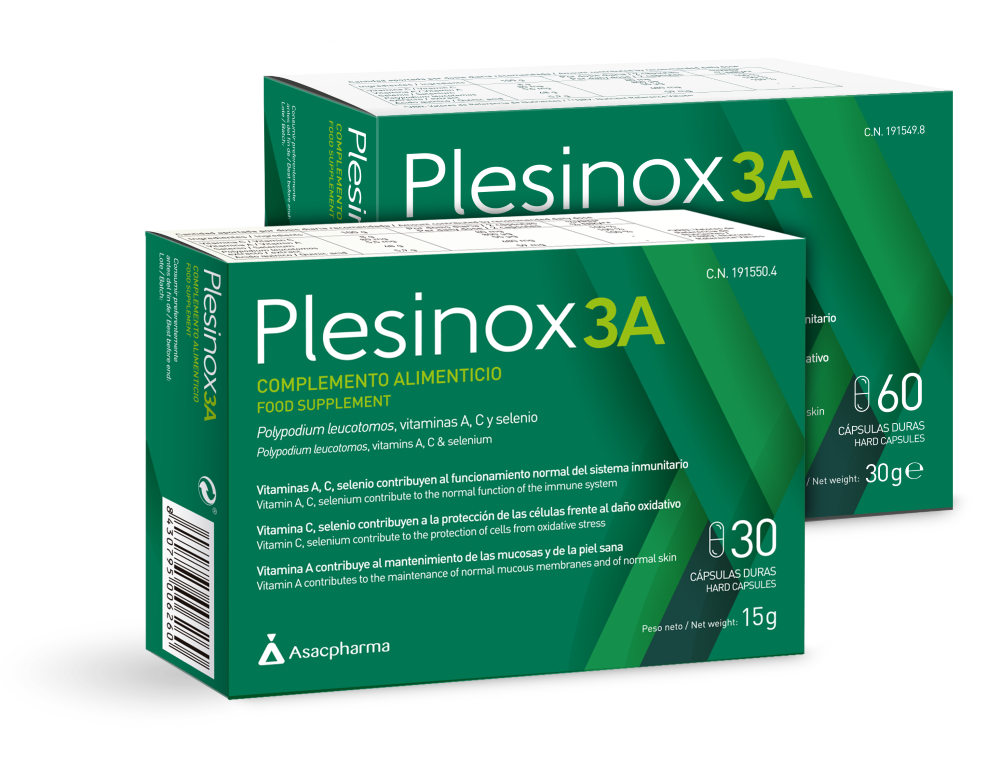The importance of vitamins and minerals for the immune system
VITAMINS AND MINERALS
The immune system stands as the guardian of our health.
This intricate network of cells, tissues and organs tirelessly works to keep us safe from within our bodies.
To effectively fulfil this role, it relies on allies like vitamins and minerals. These vitamins and trace elements serve as the immune system’s key assistants, playing a vital role in bolstering our natural defences.

How to support the immune system for optimal strength?
The immune system resembles a symphony, where each instrument must harmonise to achieve peak performance. Vitamins and minerals are the essential instruments in this symphony, each playing specific roles to maintain the system’s balance and effectiveness.
Vitamins to assist the immune system’s defences
Vitamin C

Normal functioning of the immune system
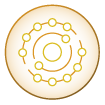
Antioxidant
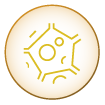
Collagen production
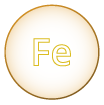
Iron absorption

Vitamin C: how does it support the immune system?
Vitamin C, dubbed the “antioxidant superhero”, plays a crucial role in preserving our well-being and fortifying our immune system.
As a water-soluble vitamin, it cannot be synthesised by our bodies, hence we must acquire it through our diet.
Which foods rich in Vitamin C can aid us?
Fruits like oranges, strawberries, kiwis and vegetables like peppers and broccoli are abundant sources of this vitamin.
How does Vitamin C aid our defences?
It serves as a valuable antioxidant, acting as a “protective shield” for our immune cells.
In our daily lives, we encounter constant external threats that produce free radicals. These radicals can harm our cells and diminish our defences. This is where Vitamin C comes in. By neutralising free radicals, it helps maintain the integrity of our immune system cells, enabling them to operate efficiently.
Vitamin A

Growth and development

Eyesight

Keeping immune system

Keeping skin and mucous membranes
How does Vitamin C aid our defences?
Known as the “vision and growth vitamin”, it emerges as a key component in our immune system.
Vitamin A is a fat-soluble vitamin, meaning it dissolves in fats and is stored in the body. Foods rich in Vitamin A are found in two main forms: preformed vitamin A, present in animal products like meat and dairy, and provitamin A, found in colourful fruits and vegetables, especially those with orange and dark green pigments.
How does Vitamin A work to aid our natural defences and promote a resilient immune system?
Vitamin A is essential for maintaining the health of mucous membranes, thin layers of tissue that line the internal surfaces of the body, such as the lungs and the digestive tract. These mucous membranes act as a physical barrier against external invaders, helping to prevent germs from entering the body.
Moreover, Vitamin A plays a crucial role in the immune response by supporting the body’s defences.
Selenium: one of the essential trace elements for supporting defences

Keeping the immune system functioning correctly
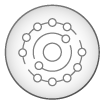
Antioxidant
In the realm of essential nutrients, selenium stands out as a vital micronutrient, playing a crucial role in fortifying our immune system.
The primary selenium-rich foods that you can incorporate include nuts, seeds, fish, beef and poultry.
Selenium: what are the properties of selenium and what benefits does it offer for the immune system?
This mineral serves as a key component of antioxidant enzymes. These enzymes tirelessly work to neutralise free radicals, unstable molecules that can harm our cells, including those of the immune system.
By combating oxidative stress, selenium helps maintain the integrity and functionality of immune cells. This is vital, as these cells play a central role in detecting any form of disruption within our body.
Carne, cereales, brócoli, cebolla y pescado.
The connection between nutrition and immune response
The link between nutrition and immune health is profound.
A well-balanced diet, abundant in vitamins and minerals, equips the immune system with the tools it needs to function efficiently. Conversely, a deficiency in these nutrients can compromise the body’s defences, rendering it susceptible to external threats.
Practical recommendations for boosting immunity
Varied and balanced diet: Incorporate a diverse array of fresh and colourful foods to ensure a comprehensive intake of essential nutrients.
Responsible supplementation: In cases of deficiency or specific requirements, supplements can be beneficial, but always seek guidance from a healthcare professional.
Healthy lifestyle: Regular exercise, sufficient sleep and effective stress management are crucial elements in maintaining a resilient immune system.
Optimal hydration: Water plays a vital role in the function of all cells, including those of the immune system.
In healthcare, vitamins and minerals emerge as indispensable allies in fortifying the immune system. Therefore, bolstering your defences with vitamins A, C and a mineral like selenium can significantly contribute to sustaining optimal immune and defence health.
